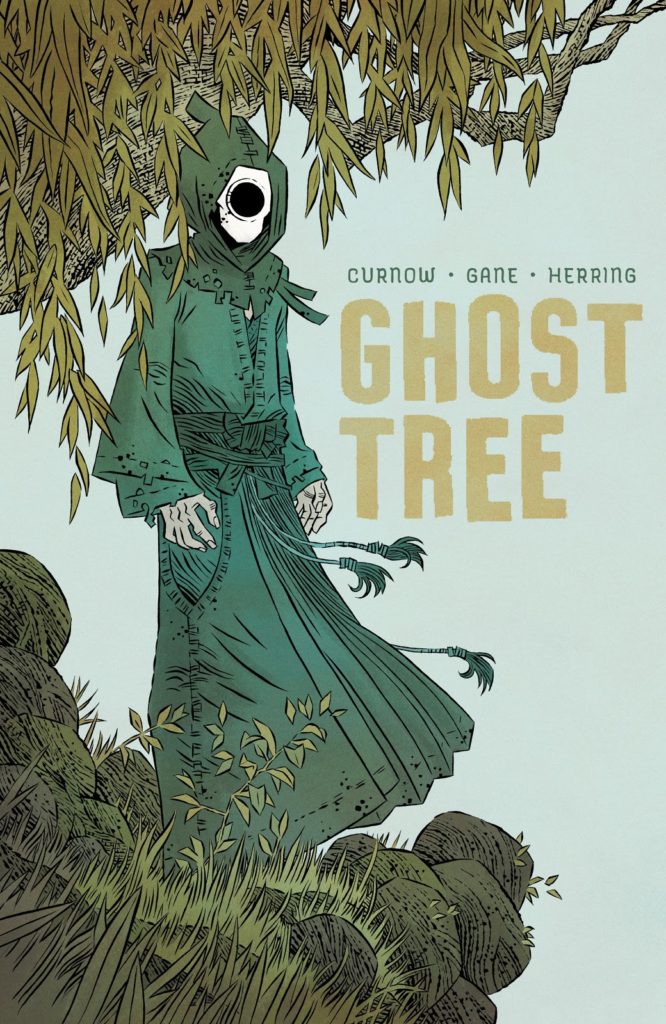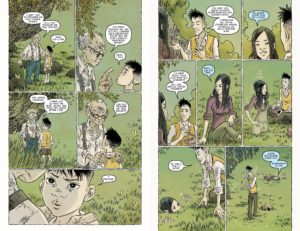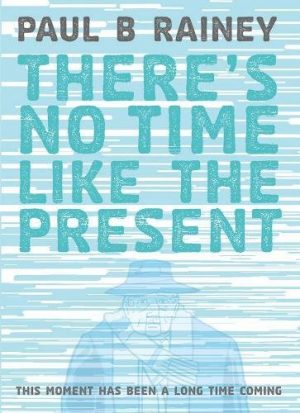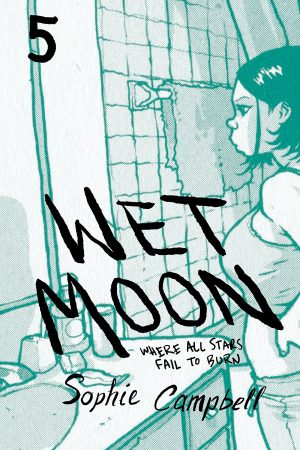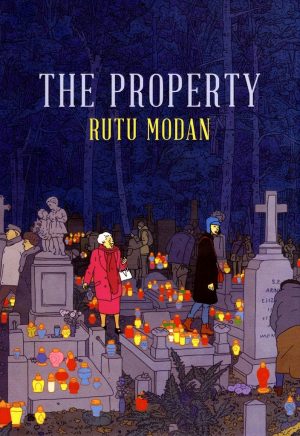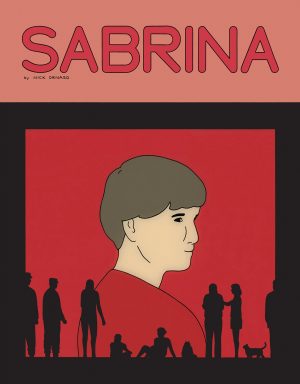Review by Ian Keogh
As seen in the sample art, when he’s a young child Brandt’s grandfather takes him into the woods near the family home and asks that they meet under a particular tree ten years to the day after he dies. Something resonates within Brandt, as many years later he flies back to Japan to fulfil that appointment.
Bobby Curnow’s concept of a ghost tree is novel, both comforting and spooky, a special tree where ghosts gather, yet remain unseen to all but a single person each generation. That person can talk with the ghosts, and Curnow explains the seductive allure of these conversations via the now dead grandfather regretting the amount of time he spent doing so while neglecting his wife. It coincides with Brandt experiencing his own marital problems and uncertain about what he wants from life, and that’s even before he meets the ghost of his teenage love.
Simon Gane’s art is deceptively special, at first glance seeming blocky and unsuited to a story of buried passion, but closer inspection reveals an understated way with people and their expressions, a lot told by small glances and turns of the head. Few people in Ghost Tree are happy, and Gane’s illustrations perfectly capture the melancholy mood, helped greatly by Ian Herring and Becka Kinzie mixing Earth tones with grey for the colouring, creating a muted environment that reflects the sadness.
Strangely, considering Ghost Tree is all about the supernatural, Curnow creating something more than emotional conflict from his mystical realism appears to be an option sapping the plot’s strengths, but he adroitly steers that away from any expectation. Where it heads instead ties into what’s been established, and neatly opens possibilities for Brandt. Will the supernatural prove more seductive than reality as it has for others?
An unusual sensitivity, an understanding of loss, and a continuing dramatic tension sweep through Ghost Tree, maintained all the way to the final few pages featuring a succession of surprises beautifully dropped in. It may be that dashing the sentimentality with a dose of realism during those pages won’t be what some readers want, but it acknowledges how things are in preference to how some might want them to be. Sometimes the damage already done cannot be repaired. Ghost Tree was nominated for an Eisner Award in 2020, and that’ll be no surprise to anyone who’s read it.
